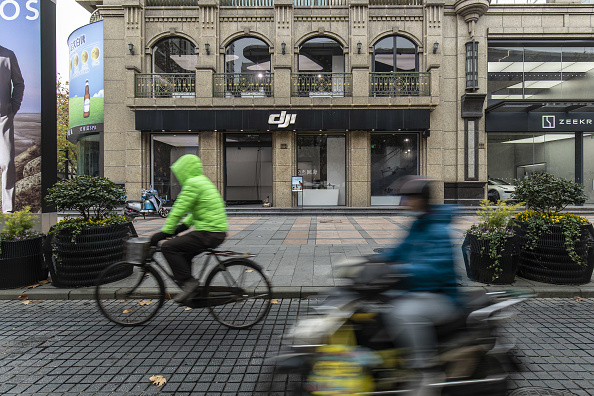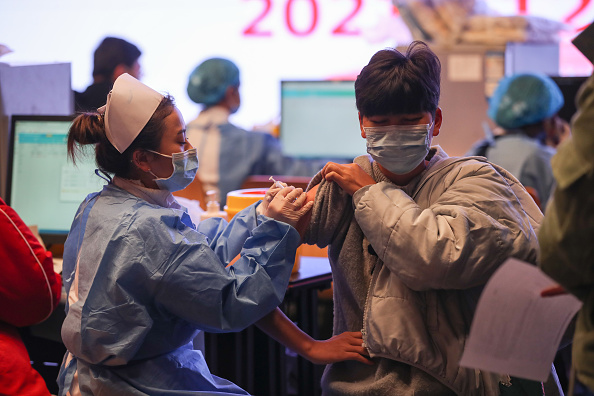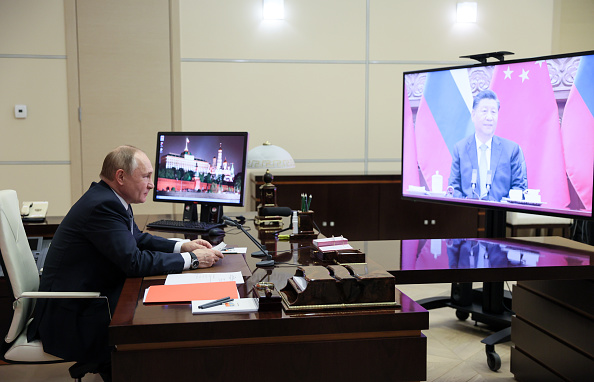
 Clamp Down
Clamp DownThe past week has seen an increasing number of restrictions placed by the U.S. against Chinese entities. Among them, the U.S. imposed new financial sanctions and other restrictions on several people and entities across China, Myanmar, North Korea and Bangladesh. The sanctions, announced by the U.S. Treasury Department on International Human Rights Day, are in response to alleged human rights violations and aimed to bolster democracy around the world.
"On International Human Rights Day, Treasury is using its tools to expose and hold accountable perpetrators of serious human rights abuse," said Deputy Secretary of the Treasury Wally Adeyemo. China's embassy in Washington criticized the U.S. move as a "severe violation of basic norms governing international relations."
The U.S. is also targeting Chinese companies over their alleged cooperation with the Chinese government on surveillance and defense. The Biden administration announced an investment blacklist, which included the largest commercial drone maker and seven other Chinese companies, for what the U.S. says are their roles in China's mass surveillance of Muslim ethnic groups.
Finally, the U.S. House also passed bipartisan legislation that would ban goods coming from the Xinjiang region unless companies can prove they have not been made with forced labor. Beijing has called the moves "perverse," and urged the U.S. to stop interfering in China's internal affairs and harming China's interests.
 Covid-Zero
Covid-ZeroThe arrival of the new Omicron variant in China has resulted in further quarantines, lockdowns, and other travel restrictions. China's pursuit of "Covid-zero" has led to various measures to control the spread of infection, which have only intensified since the Omicron variant began to spread. Xinhua, the state-run news agency, singled out ports as the entry point for the most recent cluster of infections, and reported that the government will be tightening Covid controls at port cities.
In recent months, the strict Covid policies have resulted in lower economic activity across several sectors. While industrial-production growth picked up in November, consumption and investment has been weak, and the global supply chain has continued to stutter.
Despite travel restrictions in the build-up to the 2022 Winter Olympics in Beijing, China still expects more than 1 million passenger trips to be made on a newly opened high-speed rail link to Laos during the peak Lunar New Year travel season early next year.
 Constant Contact
Constant ContactChina and Russia's Presidents Xi Jinping and Vladimir Putin warmly engaged in a 90-minute video conference on Wednesday, seeking mutual support in their ongoing friction with the West. With U.S. threats of sanctions on both Russia and China, Putin emphasized the "deep historical traditions of friendship and mutual understanding between the Russian and Chinese people", and noted that the two nations are closer than ever, with the leaders "constantly in contact."
After the call, Putin notably announced that Moscow won Beijing's support for its demand of new security guarantees from the United States. Putin also said that he will meet Xi in person when he attends the 2022 Winter Olympics Opening Ceremonies in Beijing, highlighting the diplomatic boycott of the Games by the U.S., Britain, Canada, and Australia. The call followed last week's discussion between Putin and President Joe Biden, where the U.S. threatened tough sanctions on Russia if Moscow expresses military aggression against Ukraine.
Xi and Putin's conference also spent time discussing the formation of an independent financial infrastructure, which they believe is possible with trade between China and Russia topping U.S. $100 billion for the first time, along with an increase in deals settled in yuan and rubles. Moscow and Beijing reportedly pledged to accelerate their efforts in creating an independent trade network, ultimately aimed at reducing their reliance on the U.S.-led international financial system.
Xi also expressed China's support of Russia's efforts to maintain long-term stability. While the leaders didn't announce a formal alliance, the call displayed a further united front between the two nations.
Learn more in, "Trilateral Security," featuring Richard Weitz, a Senior Fellow at the Hudson Institute.
Prepared by China-US Focus editorial teams in Hong Kong and New York, this weekly newsletter offers you snap shots of latest trends and developments emerging from China every week, while adding a dose of historical perspective.
- 2021-12-10 Debating Democracy
- 2021-12-03 Managing Competition
- 2021-11-19 Responsible World Leadership
- 2021-11-12 A Historic Transformation
- 2021-11-05 A Green Rivalry
- 2021-10-29 Dry Tinder
- 2021-10-22 A Diplomatic Burn
- 2021-10-15 Energy Crunch
- 2021-10-08 Stoking Tensions
- 2021-10-01 Great Power Coopetition
- 2021-09-24 Sign of Goodwill?
- 2021-09-17 State of Play
- 2021-09-10 The Last Word
- 2021-09-03 Heightened Frustrations
- 2021-08-27 China’s Backyard
- 2021-08-20 Graveyard of Empires
- 2021-08-13 A New Crossroads
- 2021-08-06 Lowering Barriers
- 2021-07-30 A Diplomatic Stalemate
- 2021-07-23 A Climate for Change